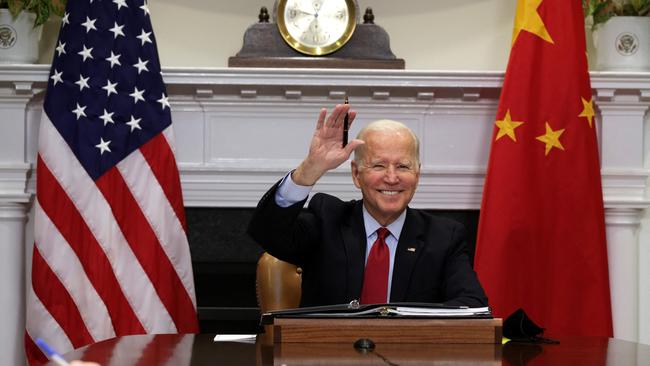
It was a nice bit of acting for the cameras.
The world’s two most powerful nations remain entangled in a superpower showdown, and Biden and Xi’s virtual meeting on Tuesday was never going to change that.
It is a reality well understood in Beijing. “Both China and the US expressed fundamentally different perspectives on a series of issues,” Shi Yinhong, a professor of international relations at Beijing’s Renmin, told The Australian after the meeting.
He gave a far from exhaustive list, including the South China Sea, arms control, cyber attacks and tech decoupling. Top of the hot issues list: Taiwan.
Biden went into the meeting urging Mr Xi to join him in creating “commonsense guardrails” to help prevent their systematic competition escalating into something horrific.
He left the meeting with no such agreement – something for which his top Asia adviser Kurt Campbell has long advocated.
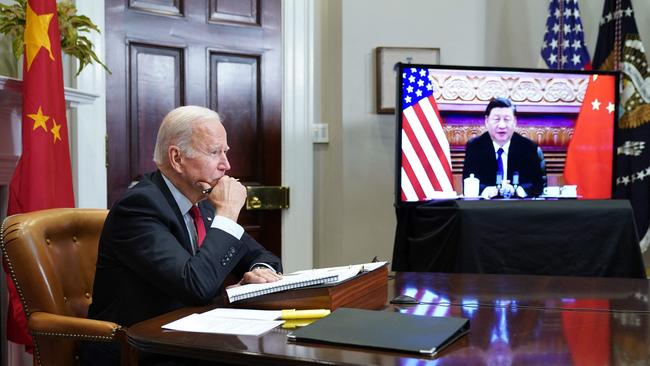
Instead, Xi told Biden that if China felt provoked, “we will have no alternative but to take drastic measures”.
“Whoever plays with fire will get burnt,” he said, in comments echoed by Beijing’s propaganda machine.
Just to make sure he was understood, another six Chinese fighter jets were sent near Taiwan the day before the meeting.
Taiwan’s stoic residents will expect more aggression in the weeks ahead when Biden hosts his Summit for Democracy.
Unless the US President’s chat with Xi changes his mind, Taiwan is on the invitation list, according to reports.
It is part of an approach Shi has dubbed “Bidenism”.
“President Biden regards the increasingly fierce competition between China and the US as a broader global ideological battle, with a self-declared mission (‘Bidenism’) to face the so-called ‘threat of authoritarianism’ and … to prove that democracy still works,” Shi wrote recently.
“The general outline of the Biden administration’s China policy is emerging: China is a near-comprehensive ‘hostile threat’ and competitor to the US in the short, medium and long term.”
It is part of the reason that Australia’s relations with Xi’s China are not getting better in a hurry.
And it is why debate about a conflict over Taiwan is likely to only get louder in Australia.
Still, at least the leaders of the two tussling superpowers are talking.
It is also not impossible that the enormous stakes, and the passage of time, will temper Xi’s approach.
“As China closes the gap militarily with the US, and as the risks of Sino-American conflict grow, history suggests that Beijing’s reticence towards crisis management mechanisms will likely reduce,” says Brendan Taylor, a strategic and defence studies expert at the Australian National University.
It is certainly worth another conversation.


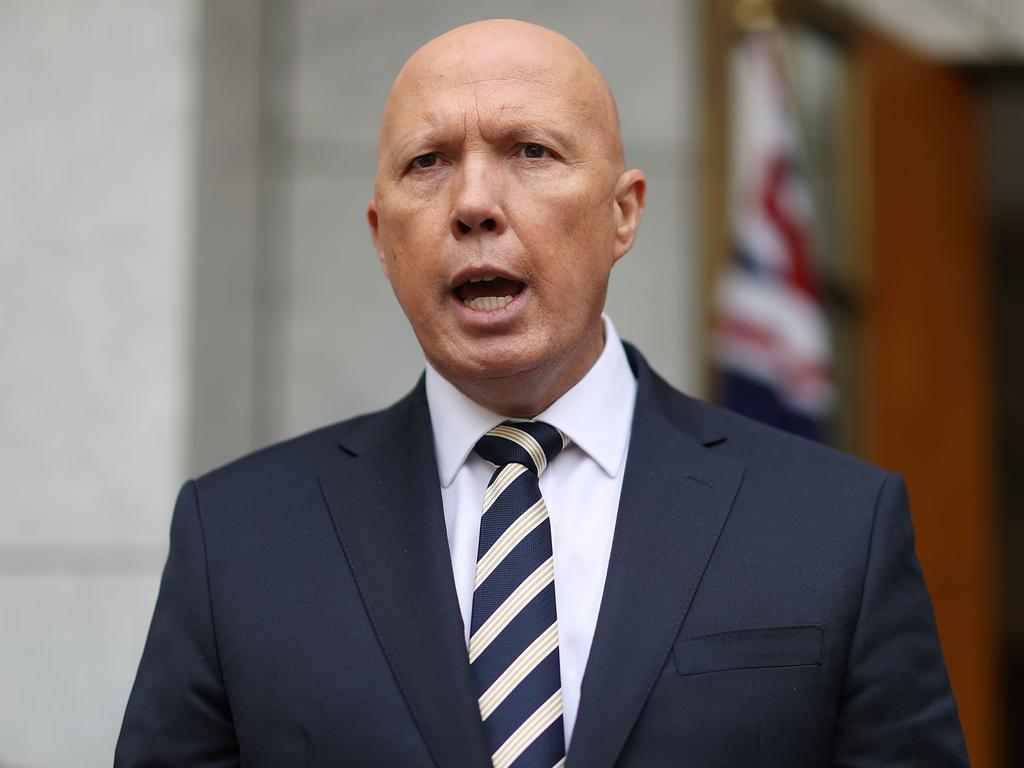
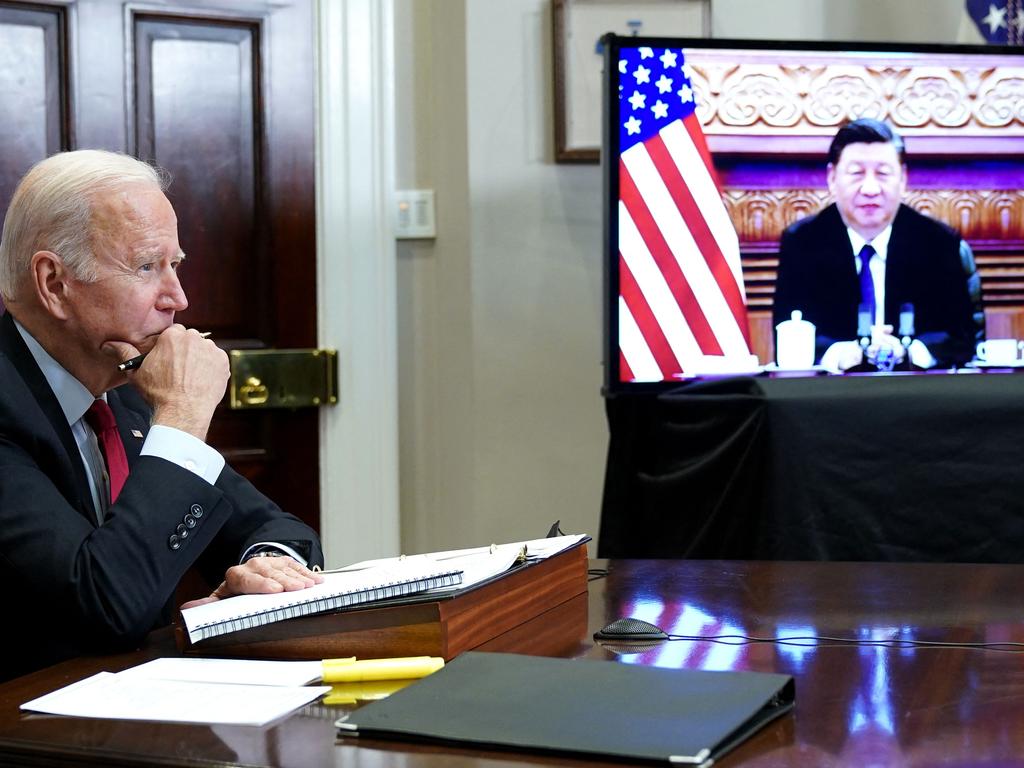
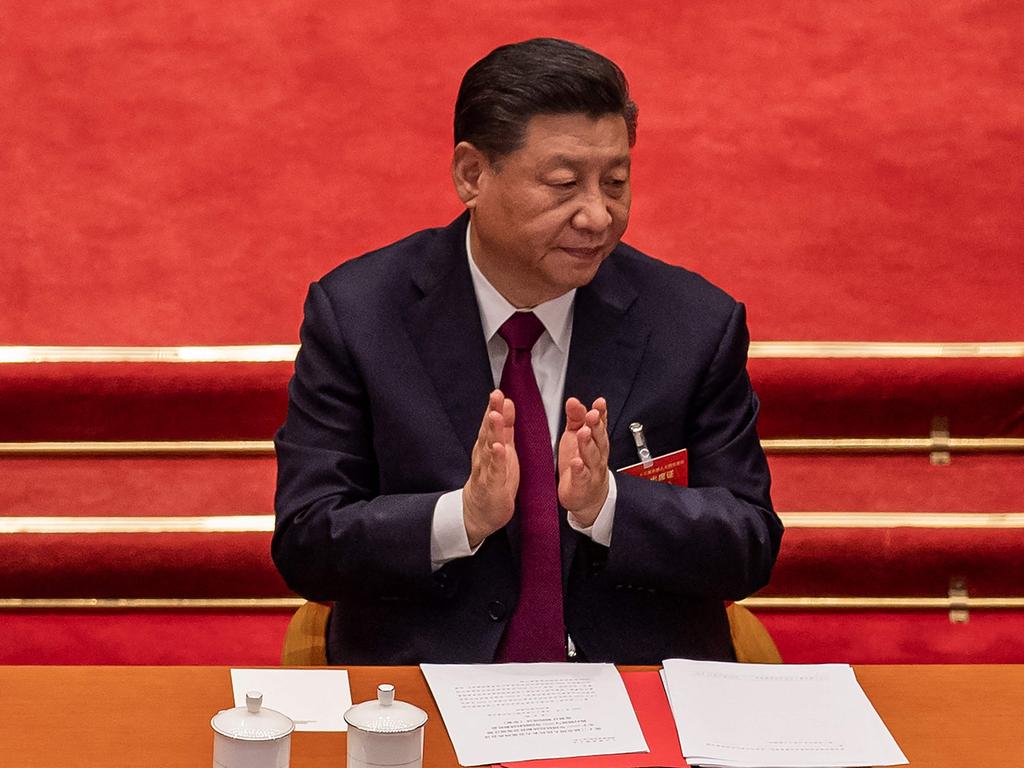
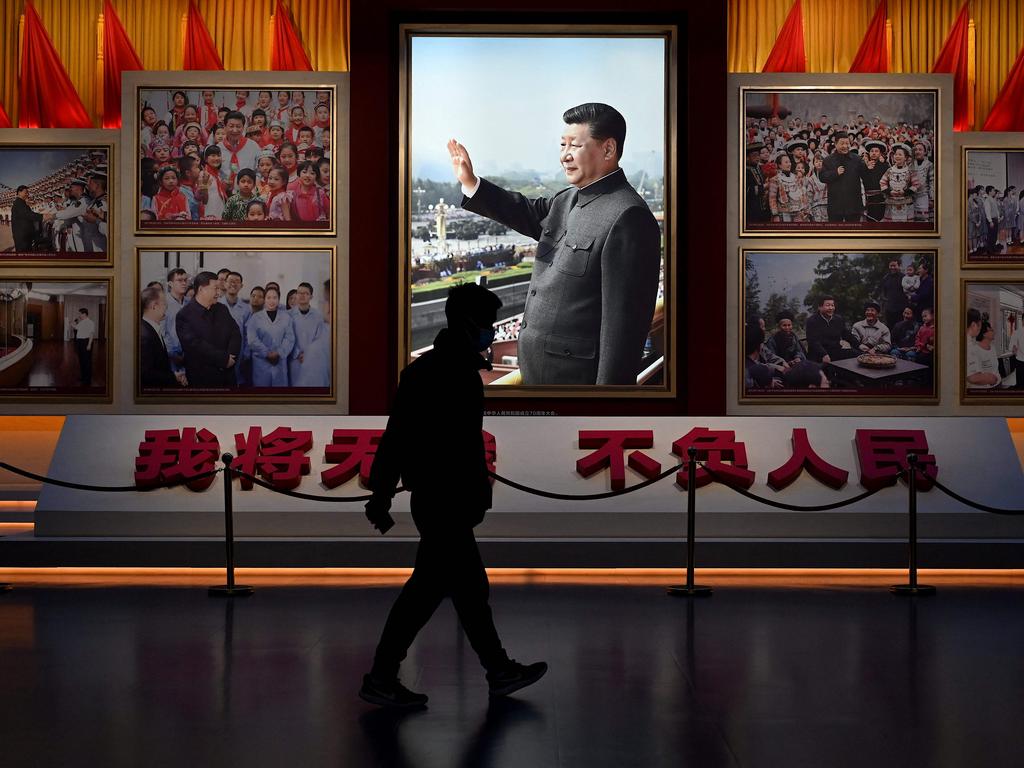


Joe Biden welcomed China’s supreme leader with a big Scranton smile. Xi Jinping said the American President was an “old friend”.